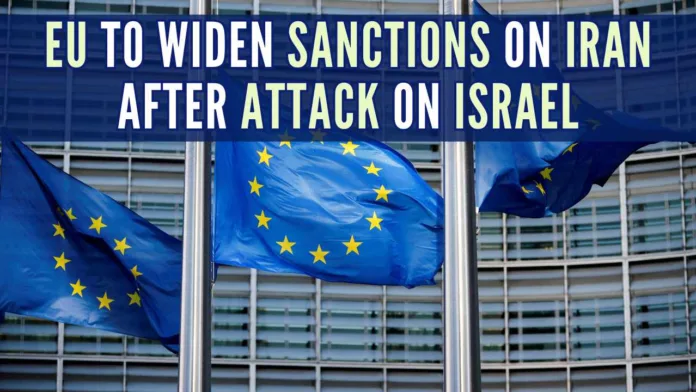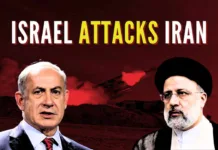
EU leaders back new sanctions on Iran drone, missile producers after attack on Israel
In the wake of Iran’s missile and drone assault on Israel, the European Union leaders have agreed to intensify sanctions against Iran, on Wednesday.
Iran’s action against Israel has left the international community on edge, seeking to avert an escalation of conflict in the volatile Middle East region.
The EU decision was taken in the Brussels summit scheduled for Wednesday and Thursday, originally meant to focus on the bloc’s economy and its competitiveness. But rising tensions in the Middle East pushed the economic discussion into the second day’s agenda.
The EU leadership collectively denounced Iran’s aggressive actions, reaffirmed their unwavering support for Israel’s security, and urged all involved parties to de-escalate tensions, particularly in Lebanon.
The EU has decided “to put in place sanctions against Iran”, European Council President Charles Michel told reporters in the early hours of Thursday morning after the first day of a two-day summit.
“The idea is to target the companies that are needed for the drones, for the missiles,” he said. Further details are to be finalized, he added.
“The European Union will take further restrictive measures against Iran, notably in relation to unmanned aerial vehicles (UAVs) and missiles,” the EU leaders’ statement said.
Israel has hinted at retaliation; the specifics remain undisclosed.
German Chancellor Olaf Scholz echoed this sentiment, stressing the significance of Israel refraining from launching a substantial counterattack. Meanwhile, Italy, in anticipation of the G7 discussions, advocated for punitive measures against the armament providers implicated in the assault on Israel, as well as those responsible for ship attacks in the Red Sea.
Calls from Israel to designate the Islamic Revolutionary Guard Corps (IRGC), the elite unit of the Iranian armed forces, as a terrorist organization are more difficult to meet.
The IRGC would first have to be prosecuted by a national authority for terrorist activities under EU law to prompt this sanction. Scholz said however a recent court ruling in the EU, concerning the activities of the IRGC, is being examined by EU officials.
This could open the way to a terrorist designation for the IRGC, Scholz said. Belgian Prime Minister Alexander De Croo said his country would support sanctions on the IRGC.
For all the latest updates, download PGurus App.
- Another jolt to Congress in MP as Six-time MLA Ramniwas Rawat joins BJP - April 30, 2024
- Amit Shah’s doctored video case: Delhi Police summons 16 leaders from 7 states - April 30, 2024
- Ahead of third phase, PM Modi writes to BJP candidates; urges to spotlight Congress’ politics of ‘division and appeasement’ - April 30, 2024










